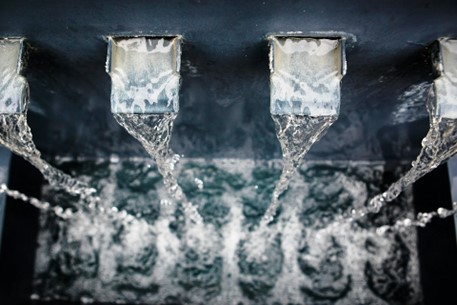
by Fern Shaw | Mar 13, 2025 | water cooler, water cooler
This is not, as one might deduce from the heading, a blog about an elephant* and a fountain**, but rather about steps that you can take when you’re convinced that you’re about to have a meltdown rivalling that of Chernobyl.
Close your eyes (preferably not when you’re driving your lorry). Gently let the world disappear and go within to regain your equilibrium. This makes sense as when one thinks of how much information one is bombarded with every waking minute of the day, it can only be a blessed relief to switch off that constant input for a little while and not just while one is sleeping, as that’s a whole different kettle of fish. Consciously closing one’s eyes and drifting off can calm ones frayed nerves immensely.
Go outside. This can be easier said than done, as we don’t all have the luxury of a village green, Common or park near us, but you can try to find a safe(ish) open area with a bit of grass or a bench where you’re not jammed in cheek by jowl with other people.
Breathe deeply. Breathing is the foundation of sanity, because it is the way we provide our brain and every other vital organ in our body with the oxygen needed for us to survive. Breathing also eliminates toxins from our systems. One of the simplest ways to calm the nerves is to stay still (sitting or standing) and breath in through the nose, mouth closed, deep into the stomach, and exhale, again, through the nose, mouth closed. Repeat 3 x.
Find some water. Whether it’s a local pond or a gentle babbling brook, being close to running water is very calming. On the rainy or snowy days that you can’t really venture outside, take a shower and imagine (albeit briefly) that you’re on some tropical island underneath a waterfall – and [insert name of favourite fantasy companion here] is preparing your meal nearby.
Drink water. When you’re overwrought, keep drinking it – from your water bottle or water glass every hour or so. Walk beside some water, look at it and listen to it. Get into some if you can, for a bath or a swim. Hot baths and hot springs are popular for good reasons.
*Although we do blog about elephants – Elephant Pumps to be precise – on occasion. More information on the connection between drinking water and elephants can be found here.
**Again, although the references here are more geared towards garden and decorative water fountains, it’s worth noting that we – AquAid – offer a wide range of top-quality water fountains, guaranteeing access to refreshing drinking water.
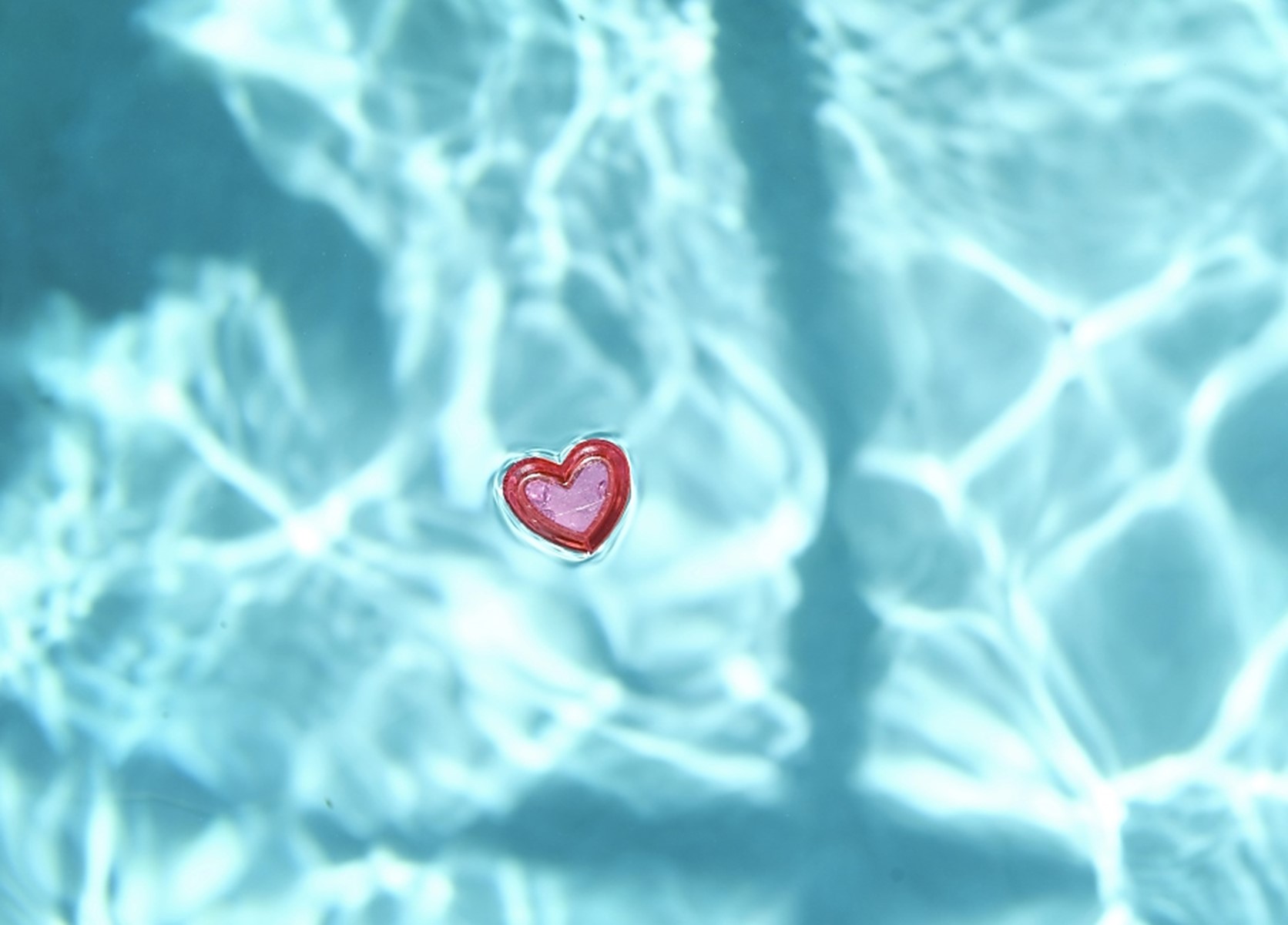
by Fern Shaw | Feb 12, 2025 | Water, water cooler, water cooler
Valentine’s Day, for some, is both one of the most dreaded and alternatively, most anticipated days in the February calendar, for a variety of reasons.
Dreaded because the day seems to have morphed into a commercialised and forced day of having to publicly declare your feelings of love and affection to a significant other.
Anticipated because the expectations of many objects of affection wait anxiously to see what the day will bring them.
Sadly, the tradition and meaning of Valentine’s seems to have been lost, which is a pity as the real aim (har har) of the day was rather lovely (and quite passionate!)
Examples through history:
*The earliest surviving valentines in English appear to be those in the Paston Letters, written in 1477 by Margery Brewes to her future husband John Paston “my right well-beloved Valentine”.
Valentine’s Day is mentioned ruefully by Ophelia in William Shakespeare’s Hamlet (1600–1601):
To-morrow is Saint Valentine’s day,
All in the morning betime,
And I a maid at your window,
To be your Valentine.
Then up he rose, and donn’d his clothes,
And dupp’d the chamber-door;
Let in the maid, that out a maid
Never departed more. ~ William Shakespeare, Hamlet, Act IV, Scene 5
In the Victorian-era there was a language of flowers, sometimes called floriography, a means of communication in which various flowers and floral arrangements were used to send coded messages, allowing individuals to express feelings which otherwise could not be spoken. This language was most communicated through a tussie-mussie (flower posy), an art which still has a following today, if in a much simpler manner.
The nuances of the language are now mostly forgotten, but red roses still imply passionate, romantic love; pink roses denote affection; white roses suggest virtue and chastity and yellow roses still stand for friendship or devotion.
Things to perhaps consider for this Valentine’s Day – whether you choose to celebrate the day or not. If you are presenting/receiving a tussie-mussie to/from your intended, remember to give it water.
Just a friendly heads-up: please don’t use the water from the home, office or school water cooler. That’s for us humans, and we kind of need it to, you know, live.
Plus, think about it: if someone doesn’t get a Valentine’s, they’ll need that drinking water to keep their skin looking all youthful, glowing and plumped-up. A bit of hydration can work wonders, whether it’s for a pre-date glow-up or just to help them plot their (hopefully more successful) strategy for next year.
Happy Valentine’s!
*source: Wikipedia
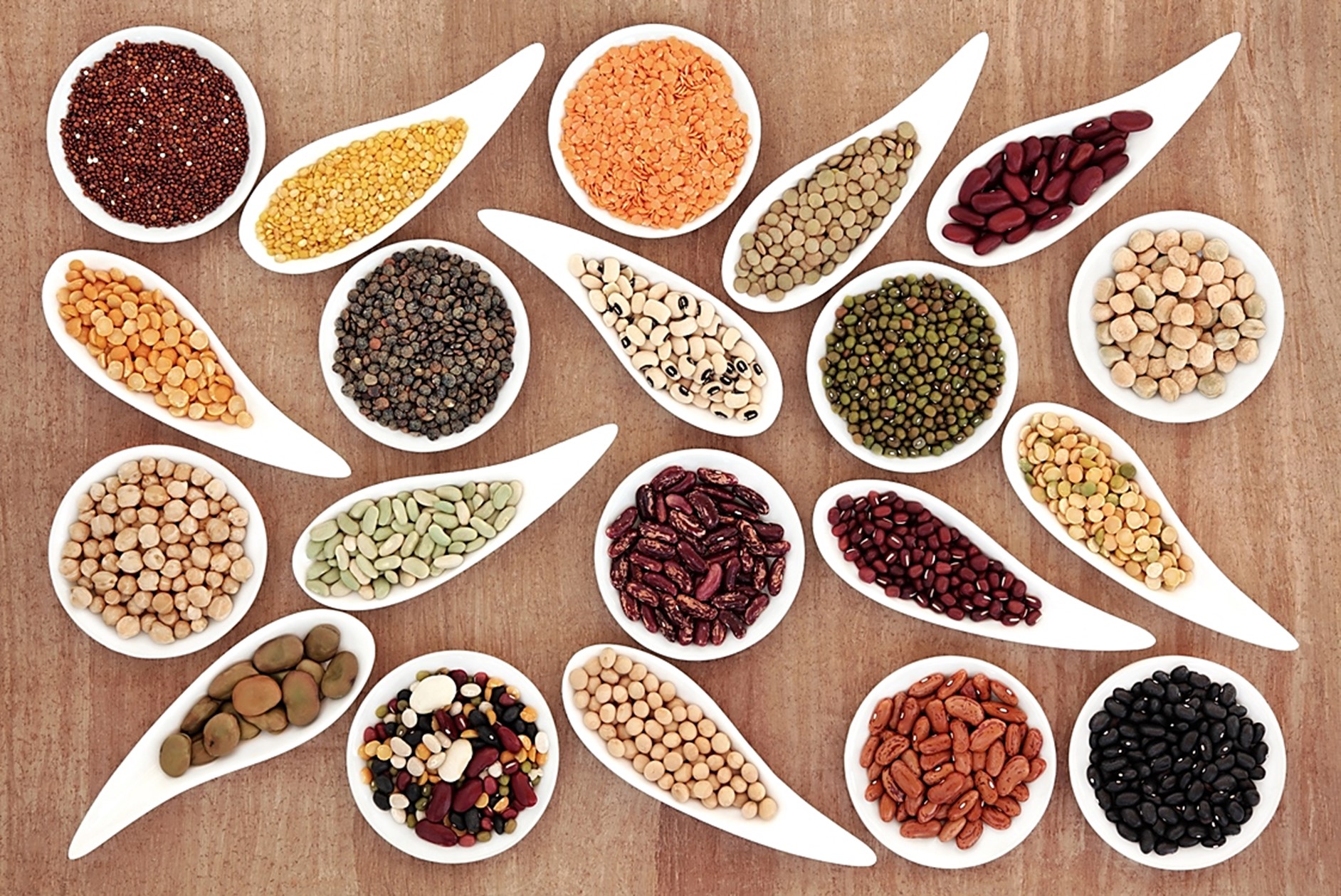
by Fern Shaw | Feb 10, 2025 | aquaid, Charity, Christian Aid, water cooler, Water Coolers
World Pulses Day
Since its inception in 2019, the 10th of February every year commemorates World Pulses Day. A few facts about pulses:
The Food and Agriculture Organization of the UN recognizes eleven different types of pulses: dry beans, dry broad beans, dry peas, chickpeas, cow peas, pigeon peas, lentils, Bambara beans, vetches, lupins and pulses nes (other minor types of pulses that don’t fit within the other categories).
Pulses are highly sustainable and climate-resilient crops. They require relatively low amounts of water compared to other protein sources and can grow on marginal land. They also help increase soil fertility by fixing nitrogen, making them a crucial element in crop rotation practices.*
World Pulses Day History
World Pulses Day serves as a global celebration of the nutritional and environmental benefits that pulses offer. Recognising the vital role these protein-rich legumes play in promoting sustainable agriculture and addressing important issues such as food security, nutrition and climate change, World Pulses Day has seen an outpouring of support from governments, farmers, researchers and consumers alike, working collaboratively to ensure pulses become a staple part of diets on a global scale.
World Pulses Day provides an opportunity for the international community to celebrate the importance of pulses in ensuring a sustainable and healthy future.*
Christian Aid
From Christian Aid, “For thousands of farming families in Malawi, pigeon peas are a route out of poverty. The mighty pigeon pea is drought-resistant, so it thrives in the dry fields of southern Malawi. It’s an essential part of the diet of millions of people around the world.
Together with our partners, we empower vulnerable communities to find practical and sustainable ways out of poverty, including giving them the skills to:
- Form cooperatives to improve their access to markets and secure a fairer price for their crops.
- Set up savings and loans to start their own businesses
- Boost the quality of their seeds and restore soil fertility
- Build warehouses to keep their crops safe from floods and cyclones, compete against large-scale producers, and gain new markets
- Promote pigeon pea recipes to increase consumption in Malawi and prevent hunger.”
AquAid
Thanks to the support of AquAid customers, together we have funded projects in Malawi that have helped over 3,300 pigeon pea farming households by reducing income poverty.
By choosing AquAid as your water cooler provider, you are helping people living in poverty globally to access clean water and build healthy lives. AquAid has supported Christian Aid for more than 15 years, donating over £4 million to water and capacity-building projects around the world.
*source: WinCalendar – World Pulses Day
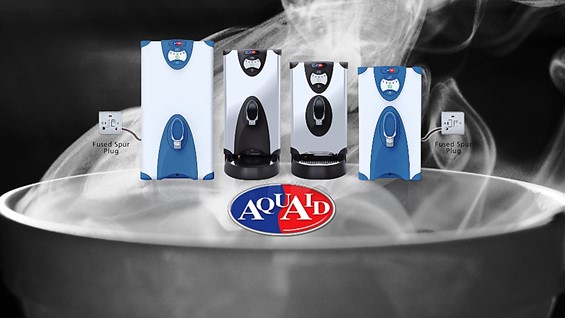
by Fern Shaw | Feb 4, 2025 | water boiler, Water Boilers, water cooler, Water Coolers, water dispenser
Hot water boilers are a terrific way to get instant hot water without having to wait for a kettle to boil. They are the perfect option for any busy premises or organisation where people need quick access to hot water for tea, coffee, or indeed, any hot drinks.
Convenience. Hot water is dispensed at the touch of a button or slight handle rotation, making it faster and easier than waiting for a kettle to boil.
Energy efficient. Hot water dispensers are more energy efficient than kettles as they only heat the water needed, rather than heating a whole kettle of water at once.
Safety. Every hot water boiler has a built-in safety mechanism that prevents overheating, making them safer than a boiling kettle.
Space-saving. As a hot water boiler can be installed under a counter or in a cupboard, a substantial amount of surface area or countertop space can be saved.
Versatility: From teas, coffees, hot chocolate through to soups, pasta and ramen, dispensing piping hot water from a hot water boiler broadens your hot water drink options.
Installing a hot water dispenser also provides other, unseen, advantages too:
Increased productivity. Having instant access to hot water can help you to be more productive, as there’s no time wasted waiting for the kettle to boil.
Reduces stress levels. Making a cup of tea or coffee can be a relaxing way to take a break from work or studies. Having instant access to hot water can make this process even more enjoyable, as although you’re taking a break, you’re still not needing to wait for a kettle to boil.
Saves money. Hot water boiler dispensers offer significant savings. More energy-efficient than kettles, they also help reduce water bills.
With a range of stylish finishes to complement any environment, AquAid hot water dispensers provide instant boiling water for staff, customers, and visitors alike.

by Fern Shaw | Jan 28, 2025 | aquaid, water cooler, Water Coolers
It was the International Day of Education recently. The day is aimed at advocating for quality education and equal access to education for all.
Numerous activities promoting the significance of and highlighting how important education is were held across the UK.
What may be surprising is that something as simple as drinking water can significantly impact a child’s education, as staying hydrated is crucial for cognitive function, focus, and overall well-being, all of which play a vital role in a child’s ability to learn.
How does hydration affect learning?
Improved concentration and focus. When children are dehydrated, their brains don’t function at their best. Dehydration can lead to fatigue, headaches, and difficulty concentrating, making it harder for them to pay attention in class and absorb information.
Enhanced memory and cognitive function. Studies have shown that proper hydration can improve memory, critical thinking skills, and overall cognitive function. This means that well-hydrated children are better equipped to tackle challenging subjects and retain information.
Reduced illness and absenteeism. Dehydration can weaken the immune system, making children more susceptible to illness. By staying hydrated, children are less likely to get sick, reducing the number of school days missed and ensuring they don’t fall behind in their studies.
Improved mood and behaviour. Dehydration can affect mood, leading to irritability and fatigue. When children are well-hydrated, they are more likely to be happy, alert, and engaged in their learning.
What can parents and educators do to encourage children to drink water?
Make water readily available. Ensure that children have access to clean water throughout the day, both at home and at school.
Set a good example. Children are more likely to drink water if they see their peers, parents, and teachers doing the same.
Encourage children to bring water bottles to school*. This allows them to stay hydrated throughout the day.
Making a conscious effort to ensure that children are well-hydrated is a simple method that can help create a more conducive learning environment and help them reach their full potential.
Installing an AquAid water cooler or water fountains in schools provides students and staff alike with direct access to a constant source of drinking water. All of which help create and instill better hydration habits.
AquAid also offer *free refillable drinking water bottles and free school posters to help keep water top of mind during the school day.
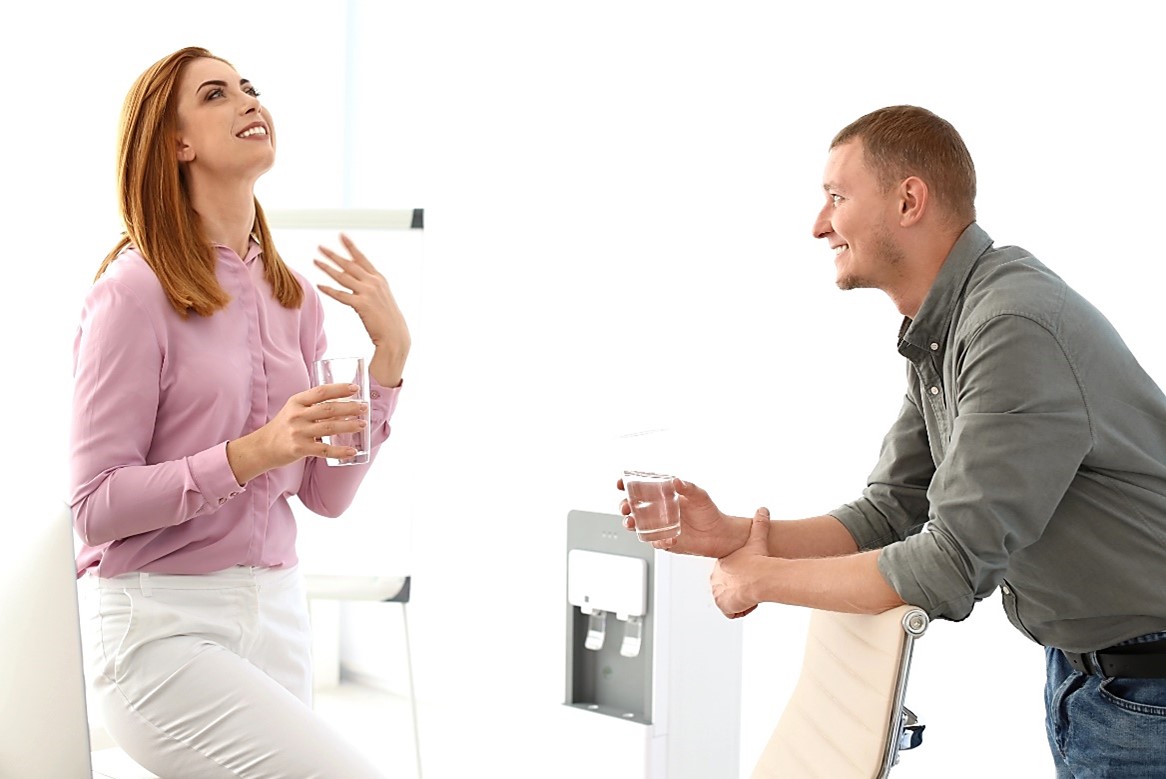
by Fern Shaw | Jan 16, 2025 | water cooler, water cooler, Water Coolers
Drinking water is essential for our physical health. It keeps us hydrated, helps our organs function properly and can even improve our skin. But can something as simple as drinking water help spark inspiration? While it might sound far-fetched, there’s a compelling link between hydration and cognitive function, which can indirectly influence our ability to be inspired.
Our brains are about 75% water. When we’re dehydrated, even mildly, our cognitive functions can take a hit. Studies have shown that dehydration can lead to:
Reduced concentration and focus. It becomes harder to stay on task and delve deep into thoughts.
Impaired memory. Both short-term and long-term memory can be affected, making it difficult to recall information or connect ideas.
Increased fatigue and brain fog. Feeling sluggish and mentally foggy can stifle creativity and make it harder to generate new ideas.
When we’re properly hydrated, our brains function more efficiently. This can translate to clearer thinking, improved focus and a greater ability to process information, all of which are conducive to inspiration. Inspiration often strikes when we’re in a state of mental clarity and openness.
While drinking water alone might not magically bestow inspiration, it plays a crucial role in supporting optimal brain function and creating an environment where inspiration is more likely to strike. By staying hydrated, we can enhance our cognitive abilities, improve our mood and increase our energy levels, all of which can contribute to a more inspired and creative state of mind. So, next time you’re seeking inspiration, remember to refill your water bottle or water glass at your water cooler and drink up – it might just be the spark you need.






